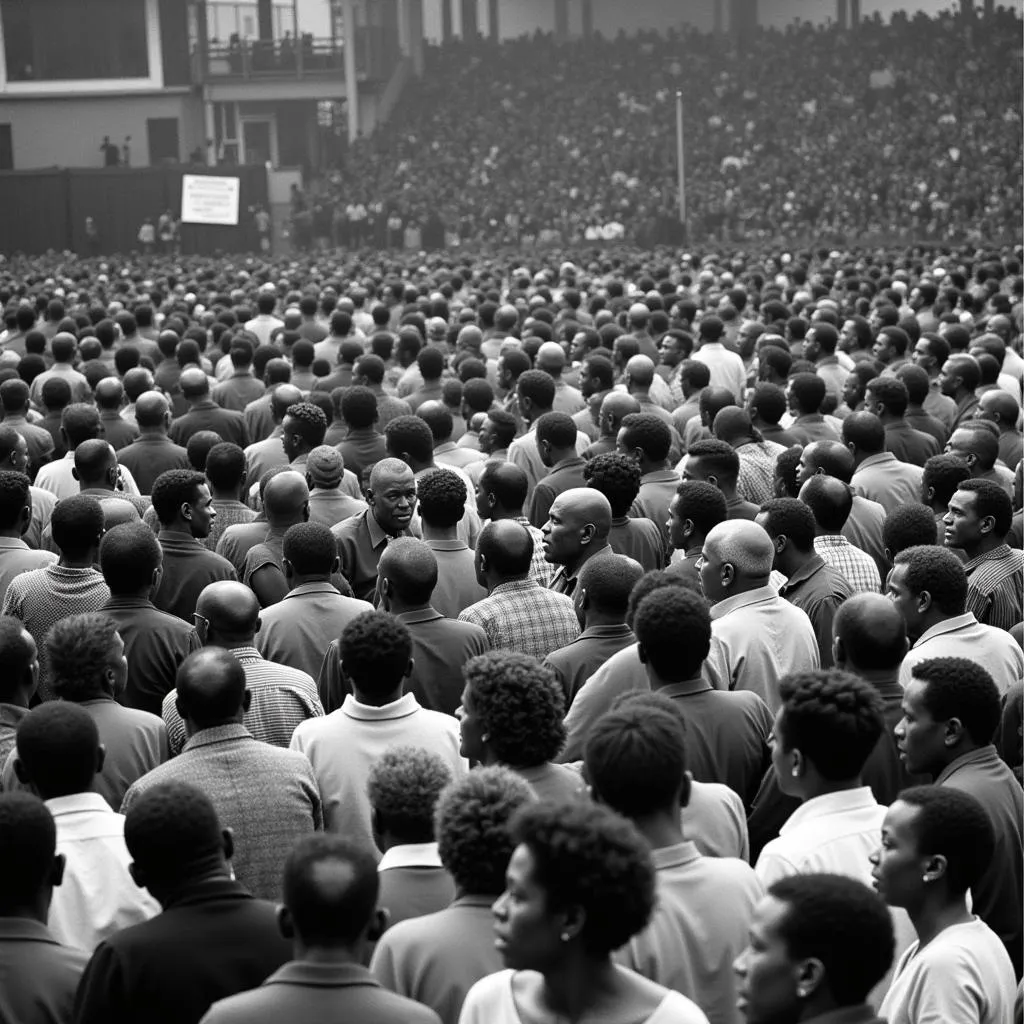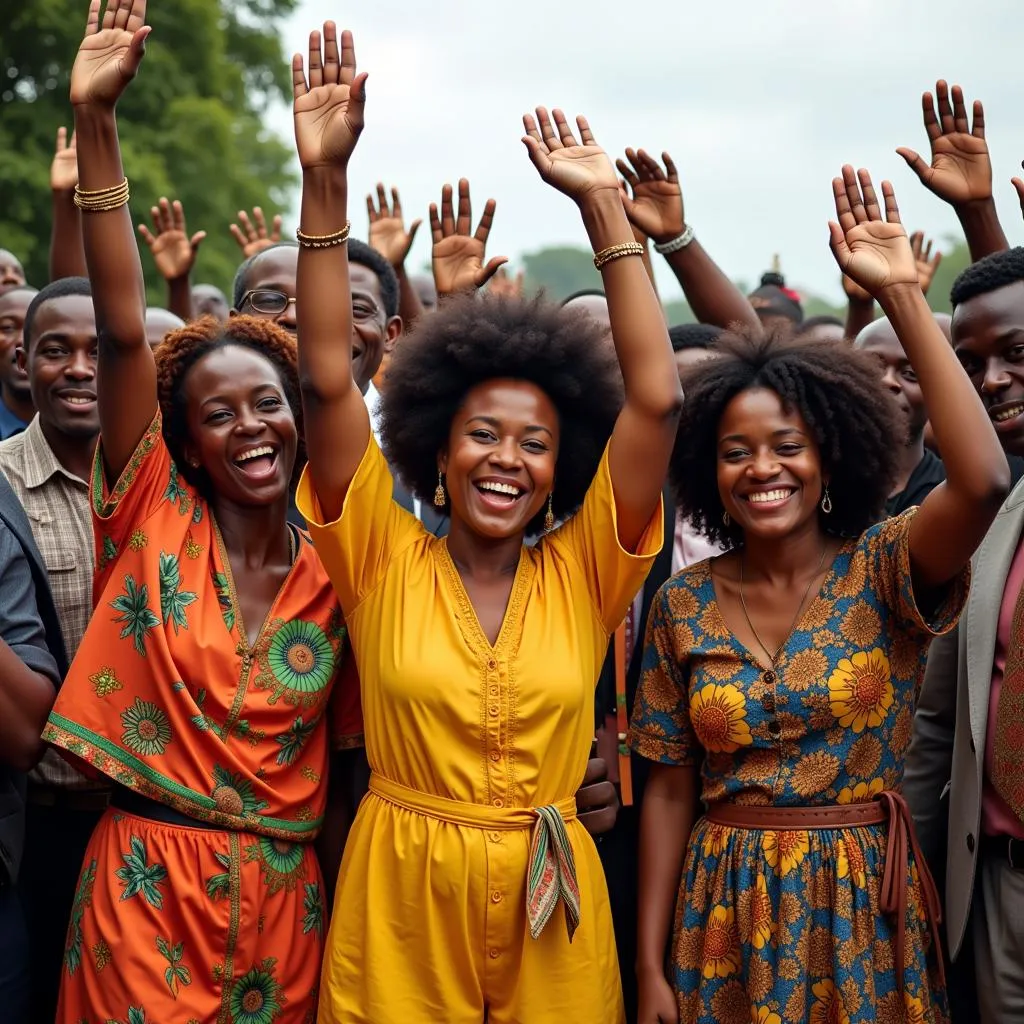The African Congress: A Journey Through History and Mission
The African Congress, a term often laden with historical weight, evokes images of powerful gatherings and pivotal decisions shaping the destiny of a continent. But what exactly does it encompass, and how has its mission evolved throughout the years? This exploration delves into the heart of the African Congress, unraveling its significance and impact on the African narrative.
Deciphering the African Congress: A Multifaceted Entity
While the term “African Congress” might appear straightforward, it actually represents a broad spectrum of organizations and movements throughout African history. It’s not a singular entity but rather an umbrella term encompassing a diverse array of groups united by a common thread: the pursuit of African advancement and liberation.
 African National Congress Meeting in the 1950s
African National Congress Meeting in the 1950s
A Historical Tapestry: From Pan-Africanism to Independence Movements
To understand the African Congress, we must journey back in time. The early 20th century witnessed the rise of Pan-Africanism, a movement advocating for the unity and solidarity of people of African descent worldwide. This ideological current laid the groundwork for various African Congresses that emerged, each reflecting the specific socio-political climate of its time and region.
One prominent example is the African National Congress (ANC) in South Africa. Founded in 1912, the ANC initially focused on advocating for the rights of black South Africans under a system of racial segregation. However, with the formalization of apartheid in 1948, the ANC’s mission transformed into a fight against the oppressive regime. It evolved from a primarily advocate organization to a powerful force leading the struggle for equality and ultimately achieving the dismantling of apartheid in 1994.
 African Leaders Celebrating Independence
African Leaders Celebrating Independence
The mid-20th century witnessed a wave of independence movements sweeping across the African continent. Many “African Congresses” emerged during this era, transforming into political parties that spearheaded their nations’ fight for self-determination. These movements, fueled by a collective desire for freedom and self-governance, fundamentally reshaped the political landscape of Africa.
Beyond Politics: The Evolving Mission of the African Congress
While the fight for political liberation remained paramount, the mission of various African Congresses extended beyond the realm of politics. Many organizations focused on addressing the social, economic, and cultural challenges faced by their people. They championed initiatives in education, healthcare, economic empowerment, and cultural preservation, aiming to uplift communities and foster a sense of shared identity and progress.
The African Congress Today: Navigating Contemporary Challenges
In the 21st century, the African Congress continues to evolve. Organizations bearing the name or embodying the spirit of the African Congress grapple with contemporary issues like globalization, climate change, technological advancements, and economic disparities. They strive to represent the voices of their constituents on regional and international platforms, advocating for equitable development and sustainable solutions.
The mission of the African Congress today is multifaceted and dynamic. It encompasses a range of activities, including:
- Promoting good governance and democracy: Advocating for transparent and accountable leadership, upholding human rights, and strengthening democratic institutions.
- Fostering economic growth and development: Working towards poverty reduction, promoting inclusive economic policies, and creating opportunities for all.
- Addressing social inequalities: Tackling issues like gender inequality, access to education and healthcare, and social inclusion.
- Preserving cultural heritage: Promoting and celebrating the rich cultural tapestry of Africa, safeguarding its languages, traditions, and artistic expressions.
- Promoting peace and security: Working towards conflict resolution, addressing the root causes of instability, and fostering dialogue and cooperation.
The African Congress: A Legacy of Resilience and Transformation
The African Congress, in its many forms and iterations, stands as a testament to the resilience and determination of the African people. From the fight against colonialism and apartheid to navigating the complexities of the 21st century, the spirit of the African Congress embodies a persistent pursuit of progress, unity, and self-determination. It reminds us that the journey towards a just and equitable Africa is ongoing, requiring continued commitment, collaboration, and unwavering hope.
